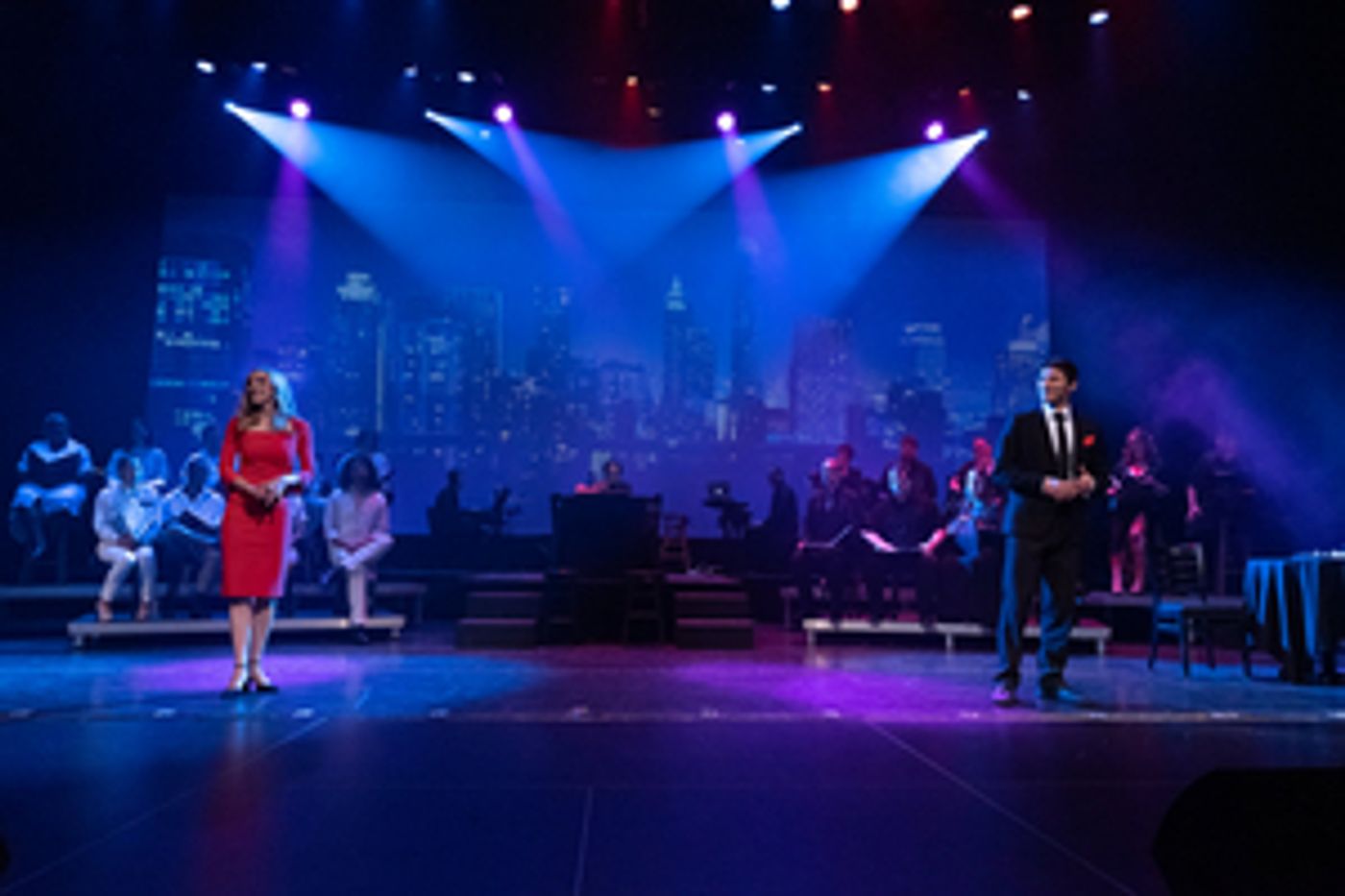Review: CHESS Brings a Rocky Start to the Jennie T. Anderson Theatre's New Season
This is the theatre's first in-person Overture Series concert of the season.

The Jennie T. Anderson Theatre is back with live, in-theatre shows, starting with CHESS in concert on July 24th. Directed by Lilliangina Quiñones, Artistic Director Jono Davis mentioned in the program that this show came together in just seven days for one night only. A part of the theatre's Overture Series, CHESS has actually been in progress since 2019, but was delayed due to the pandemic.
CHESS was originally conceived in the early '80s by lyricist and bookwriter Tim Rice, who at the time was best known for his collaborations with Andrew Lloyd Webber. Partnering with ABBA's Benny Andersson and Björn Ulvaeus on the musical theatre-pop score, CHESS is inspired by the "Match of the Century," played between Bobby Fischer and Boris Spassky in 1972. Through the game of chess and the musical, it's insinuated that the entirety of the Cold War was nothing more than a game.
CHESS follows three main characters: Freddie (Juan Carlos Unzueta), the U.S. chess genius, Anatoly (Maxim Gukhman), the representative from the Soviet Union, and Florence (Kylie Brown), Freddie's second. It has been quite a while since I've encountered a production with so many unlikeable characters. In the end, I did not root for anyone. Florence is weak, Anatoly is unfaithful, and Freddie is misogynistic.
My familiarity with the musical dates back to the 2009 recording with Idina Menzel, Josh Groban, and Adam Pascal. In this U.K. version, "Pity the Child" is set up as Freddie's song in Act I. Instead of a "Terrace Duet," Anatoly and Florence share "Mountain Duet." Unfortunately, the Anderson Theatre opted for the U.S. version which replaces those songs (as well as plenty of others) with dialogue.
The concert nature of this production meant there was very little added to the stage. Some concert productions are simply the characters singing at microphones with the orchestra on stage. This production of CHESS was different in the sense that they added blocking and stage elements to help tell the story. The orchestra was present, furthest upstage. There were times that the orchestra drowned out the voices of our characters (on occasion, all I could hear were horns).
One thing that was an odd choice for this specific production of CHESS was the inclusion of two dancers. They danced during the instrumental and transitional numbers. It felt as though they were there to prevent the audience from getting bored during those numbers, but they mostly seemed misplaced. Their dancing in "One Night in Bangkok" was fun and added to the feel of that number, but that was the only redeeming bit of choreography.
There were two areas for the ensemble, who were on stage the entire time. (As someone who spent her fair share of time in ballet corps, props to the ensemble. They only started getting restless in the second act.) Their restlessness became distracting in the second half. It became a bit of a game to see how many times they would move when they were just a part of the background.
Costumes were very simple, with the U.S. "side" in white and the Soviet "side" in black. Florence stood out in a red dress, and Anatoly had a red pocket square in the breast pocket of his suit. Thus, these characters seemed connected from the beginning, even if their love story was unbelievable.
The cast and crew seemed proud of the minimal rehearsal time, but it looked like a hindrance for some of the characters and cues. There were mic and lighting miscues. At times, characters physically interacted where mics were bumped, sending loud "booms" through the audience. A couple of scenes even started in darkness.
The fact that characters were reading straight from the script led to many lazy mistakes. The biggest offender was the character of Walter (Skyler Broan). In the end, there was supposed to be a twist involving his character, but he messed up so many lines referring to "Secretary of State" that it was difficult to tell what his storyline was. Thus, the "clues" weren't there, and the "dramatic reveal" came out of nowhere.
However, for the three stars, I was very impressed. Unzueta, Gukhman, and Brown were all primarily off-book. They each sang their songs with such tremendous feeling that I almost felt myself rooting for them, even if their characters were awful. The romantic dynamic between Gukhman and Brown was believable, even with only a week of rehearsals. Unzueta and Brown felt a little forced in some places, but theirs was shaped more like a celebrity and his handler than a romance.
The real standout of the entire production was Freddie's (Juan Carlos Unzueta) "Pity the Child." Unzueta had very little on stage (due to the nature of the "concert" production), and he sold that song and his story with nothing more than himself.
The Jennie T. Anderson Theatre returns in October with a concert production of Sunday in the Park with George. Tickets go on sale in August. For more information, head over to https://www.andersontheatre.org.
Reader Reviews
Videos

